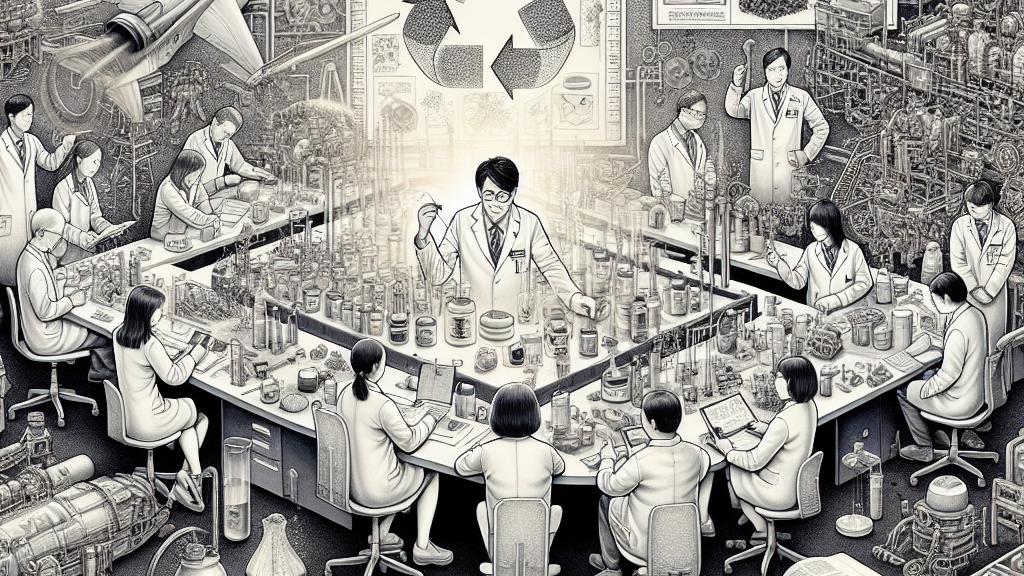Unlocking Epoxy: A New Way to Recycle Tough Materials
Overview
- Innovative recycling techniques are transforming how we reclaim materials from tough epoxy resins.
- This advancement significantly reduces plastic waste and paves the way for a sustainable future.
- A revolutionary catalyst is the key player in this groundbreaking recycling breakthrough.

The Challenge of Recycling Epoxy
In Japan, a dedicated team of researchers from the University of Tokyo is tackling the complex issue of recycling epoxy resins. You may be surprised to learn that these compounds, integral to everyday items and industrial applications—from smartphones to aircraft parts—are notoriously difficult to recycle. Traditional methods often demand extreme conditions, such as temperatures over 500 degrees Celsius or the use of harsh chemicals, which not only waste valuable energy but also contribute to environmental degradation. Thankfully, this new research has introduced an innovative solid catalyst that makes the recycling process far more efficient and environmentally friendly, making a significant step toward addressing our plastic waste crisis.
Introducing Innovative Catalysts
What truly sets this research apart is the use of a bimetallic catalyst composed of nickel and palladium. This dynamic combination operates at a relatively low temperature of just 180 degrees Celsius, vastly improving the recycling process. Imagine a powerful tool that, like an expert craftsman, meticulously disassembles the tough bonds within epoxy compounds! This catalyst not only facilitates the breakdown of these materials but also can be reused multiple times, maintaining its effectiveness. This is crucial because it helps reduce costs and conserves resources. Thanks to this remarkable catalyst, we can envision a future where materials are continuously recycled, thus fostering a closed-loop system in our economy.
The Path Towards Sustainability
The implications of this groundbreaking recycling method are nothing short of extraordinary! As our world grapples with an escalating plastic waste crisis, the ability to recycle epoxy resins offers a beacon of hope. For instance, consider industries like construction and aerospace, where composite materials could be repurposed, significantly reducing their environmental footprint. Not only does this innovative approach promote recycling, but it also raises awareness about responsible consumption and resource management. In a time when sustainability is at the forefront of global discussions, this research paves the way for a cleaner, healthier planet. Together, we can turn aspirations of sustainability into real-world practices, making tomorrow brighter for generations to come!

Loading...